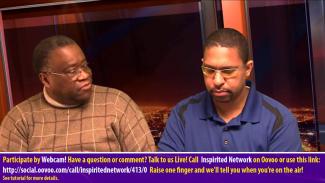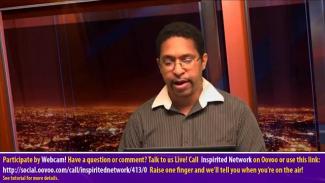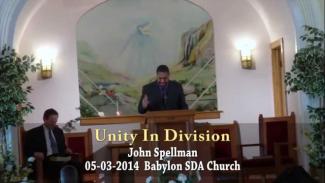What does Proverbs teach about relationships? How should people deal with conflicts with one another? How do words play a role in conflicts? If friends are to love one another, what does that love look like and how should it be demonstrated? What value should be placed on money in our personal relationships? This week, in Proverbs 17-19, Solomon explores conflicts and gives sound wisdom that can greatly impact how we get along with one another.
Topic: Miscellaneous
To see more broadcasts select show names, a year, or all video media.As human beings we often look only at the surface value of things and fail to see what is beyond. Much like how the crew of a ship sees the tip of an iceberg, people may think the wicked prosper but don't know the full story. How does Solomon again compare the foolish and the wise? In what ways do people today display these characteristics? When you get past the surface value, what are the rewards of the fool and the wise? What do each contribute to society? What other things does Solomon teach us in Proverbs 14 - 16?
What is the difference between when we obtain material wealth and obtain it with God's blessing? How does Proverbs contrast the experience of the righteous with that of the wicked? Can a person be intelligent or smart, but still be foolish and unwise? What are the rewards of doing the right thing? What should be our motivation to do right? How does God feel about hard work and laziness? How do our choices to do right or wrong impact people around us? In this week's lesson we explore how Proverbs illustrates the way in which we reap what we sow.
This week we focus on wisdom and its link to Creation. How is wisdom linked to creation? In what ways does wisdom's personification in Proverbs 8 connect with the characteristics of the Godhead? Also, in this chapter, Solomon again compares wisdom and foolishness highlighting their different approach at drawing people to their side. What makes wisdom the better option? What value should we place on wisdom? How do fools respond to wisdom?
This week we discuss Solomon's themes of law as it relates to light and life. How can God's law function as a light in our lives? What does it mean to have the law written on the heart? Does God really want us to tie commandments to our heads, hearts, necks, and hands? How should we interpret these passages of scripture? What does Solomon have to say about resisting temptation? In this study we explore Solomon's advice: including why one must resist the adulterous woman. What important lessons does Solomon focus on here and why are they so crucial?
In the book of Proverbs, Solomon often refers to the ears and the feet. What do these references mean? Why are the ears and feet so important? This week we explore Proverbs 4 - 6 looking at some of the wise counsels of Solomon on subjects such as obtaining wisdom, work, sexuality and family, friendship, avoiding the calamity of evil. Is Solomon's wisdom still valid today? In our post modern world, how might we apply this wisdom?
This week we begin studying the book of Proverbs written by Solomon. What is the meaning of these wise sayings? Why did Solomon write them? Where did Solomon get his wisdom from? Is wisdom something to work for, or is it something given and received? What is the greatest source of wisdom and how can people obtain it today? Is there a difference between worldly wisdom and heavenly wisdom? As we begin our study on the book of Proverbs we will look at Solomon's call to wisdom and tackle many of these questions.
What is the difference between worldly and heavenly wisdom? What forms the basis for both? What is the end goal of all true wisdom? How does worldly wisdom impact the church? Is there a difference between knowledge, understanding, and wisdom? How do we know who is wise and who isn't? This week we explore the true meaning of wisdom in the book of James, and what this wisdom means for us today.
Jesus prayed for the church to be united, but what were the grounds for that unity? What were the unifying factors of God's church? How can we put unity into practice? What or whom did Jesus say was the foundation of the church? What rock is it founded upon and how can we be sure? When conflict arises amongst brethren, what steps can we take toward conflict resolution?
There are many different traditions that exist in our world today. What is the relationship between faith and tradition? Does tradition always contradict faith? How did Jesus feel about tradition? Are there Biblical traditions that God expects us to follow? How can we discern when tradition has gone too far? This week we explore these questions and their implications for believers today.












